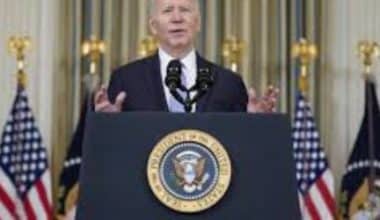Have you ever thought about becoming a manager, whether you’re interviewing for the position of manager or simply wondering what a management position encompasses, but want to know what the responsibilities of a property manager are? Read on to learn all about the definition and various responsibilities of a project, product, and account manager.
What are Manager’s Responsibilities
Manager responsibilities are the specific tasks and roles to expect when working as a manager. These are the day-to-day tasks of a manager or the specific actions that make up the workday. While a manager’s duties may be primarily to lead their team, they may also have other duties throughout the day, including administrative or project-based ones. Additionally, the work environment of the manager will also dictate the type of duties they are to expect.
How to Become a Manager
Becoming a manager requires the recognition of important skills, as well as completing the necessary training required. If you want to become a manager in your industry, you can work toward it with the following steps:
#1. Explore Manager Education
If you’re interested in becoming a manager, one of the first things to consider is how much education you need. This is because about 49.3% of managers have a bachelor’s degree. In terms of higher education levels, we found that 7.1% of managers have master’s degrees. Even though most managers have a college degree, it’s possible to become one with only a high school degree or GED.
#2. Choose a Specialty
First, consider what industry you want to manage: Managers are needed in most industries. But, the steps toward becoming a manager can differ between them. For example, if you want to manage in the sales industry, you may need to develop sales skills. However, if you want to work as a manager in healthcare, then you may need a certain amount of work experience working as a nurse or healthcare administrator.
#3. Learn About the Manager’s Skills
Then, write down a list of your current manager skills: It can be helpful to consider first, which skills you have, as well as the ones you want to develop as a manager. This gives you an idea of what skills to improve upon. It can also be helpful to evaluate a job description for managers to get a better idea of what skills are needed.
#4. Learn About the Responsibilities
Write down a list of duties you would like to learn: It can also be helpful to consider what requirements are needed as a manager in your industry of interest. Is a degree required? What is the specific level of experience requested? Do managers in your industry have certain certifications? Write down these requirements and develop a plan working toward them.
#5. Accept More Responsibilities
Finally, gradually accept more responsibility in your current position: Accepting more responsibility is important as you work toward a manager level. You might volunteer to work as a shift leader. This can lead to the opportunity to work as a supervisor or an assistant manager. These types of positions will help you develop the important skills of a manager.
Expressing your managerial aspirations to your supervisor can be valuable, depending on their leadership style. This person may be able to provide honest feedback about your readiness and suggest ways to develop your skills before applying. They might even assign you new projects or offer insight into their own experience as a manager.
What are the top 5 Duties of a Manager?
Managers are often met with a diverse, versatile workday. Their duties can include tasks that are task or goal-based. They may be involved in the day-to-day operations of the business or completing projects that meet the long-term goals of the company. Here are a few top duties of a manager:
#1. Envision the Goals
The managers need to understand how the goals are being directed in the organization. He/she should envision the mission and goals of the organization which is crucial to the growth of the business. The managers need to communicate the goals properly to the employees and map ways that help to achieve these goals in a strategic fashion.
#2. Manage the Growth
One of the most common roles and responsibilities of a manager is to sustain the growth of the organization. The manager needs to scan and analyze the internal and external environment that poses a threat to the survival of the business.
#3. Improve the Efficiency of the Firm
The manager needs to ensure that the resources are properly utilized and not wasted. This can make the way for the overall efficiency of the firm’s resources. Also, managers need to improve and maintain the efficiency of the firm in order to reach success.
#4. Being Innovative
The manager needs to be innovative in his work. He needs to develop strategies that would help him find creative solutions to the problems encountered in the organization. In addition, the manager must inculcate innovation in the employees and encourage them to come up with ideas to achieve goals faster and better.
#5. Leadership
The manager must be a good leader and a motivator. He/she needs to inspire and motivate the employees working in the organization. A leader must also ensure that the goals of the company are achieved and the employees’ interests are protected at the same time. In other words, the manager must possess superior leadership skills in order to lead the employees in a better way.
Project Manager Responsibilities
As the name suggests, a project manager is responsible for projects from initiation to close, making sure the work gets done efficiently and satisfactorily. As team leaders with day-to-day schedules that are constantly changing, a static project manager job description would be hard to come by. Where their days are filled with planning the project process, creating a budget, managing a team, or communicating with clients. Also, project managers span a wide range of industries from engineering to financial services. This is because every company wants to keep costs down without lowering standards, and project managers help make this possible.
Lists Of Project Manager Responsibilities
The term “project manager” is so broad that it entails various tasks and means different things to different people. So what is the typical job description for a project manager? The responsibilities of a project manager include:
- Identifying project goals, needs, and scope
- Planning, monitoring, and documenting tasks throughout a project
- Ensuring all tasks, deliverables, and project materials are delivered promptly
- Managing all resources necessary for project execution
- Fostering effective communication with stakeholders concerning project status
- Foreseeing and strategically eliminating blockers and potential risks
- Documenting each step of the process using various project management tools
- Ensuring top-quality results and success for a project
Additionally, these core responsibilities are pillars of project management. They empower project managers to supervise an assignment adequately.
Property Manager Responsibilities
A property manager is an individual employed by a property owner to oversee and manage the daily workings of their real estate investment. Property manager responsibilities include setting and collecting rent, handling maintenance requests, filling vacant units and potentially setting the budget for the property. Also, property managers often take care of a property that real estate investors either do not live near or do not wish to personally manage. A property manager can be one person or an entire management company, depending on the needs of the owner.
What Does a Property Manager Do?
In general, a property manager is hired when the landlord or real estate investor wants to outsource some or all of the daily responsibilities of their rental property. Property manager responsibilities can, indeed, include a few basic tasks or you might be responsible for entire operations at the property. We list below a few of the property manager’s responsibilities.
- Manage all aspects of assigned properties
- Design business plans for assigned properties that suit customers’ needs
- Inspect and arrange maintenance to meet standards
- Maintain a positive, productive relationship with tenants
- Negotiate leases/contracts with contractors in a timely and reliable manner
- Advertise and market vacant spaces to attract tenants
- Collect receivable accounts and handle operating expenses
- Develop and manage annual budgets by forecasting requirements and analyzing variances, data, and trends
- Oversee properties’ personnel and assess their performance
- Accomplish financial goals and report periodically on financial performance
Source and build relationships with prospective clients to expand business opportunities
Product Manager Responsibilities
A product manager is a professional who’s responsible for a company’s product development. Tasked with handling both the creation and the marketing of products once they have been produced, product manager roles and responsibilities include ensuring all product specifications and requirements are met. They also scope out the competition and analyze proposed products, among other duties
Product Manager Responsibilities: Examples
If you’re searching for a product manager for your small business, it’s important to know what makes a product manager a successful professional. Here are some common product manager roles and responsibilities:
- Gain a deep understanding of customer experience, identify and fill product gaps and generate new ideas that grow market share, improve customer experience and drive growth
- Create buy-in for the product vision both internally and with key external partners
- Develop product pricing and positioning strategies
- Translate product strategy into detailed requirements and prototypes
- Scope and prioritize activities based on business and customer impact
- Work closely with engineering teams to deliver quick time-to-market and optimal resources
- Drive product launches including working with the public relations team, executives, and other product management team members
- Evaluate promotional plans to ensure that they are consistent with product line strategy and that the message is effectively conveyed
- Act as a product evangelist to build awareness and understanding
- Represent the company by visiting customers to solicit feedback on company products and services
Account Manager Responsibilities
An account manager is responsible for making sure client and customer needs are being met and understood by every department in the company. Their duties include handling any client complaints, working to find solutions to any client issues, and managing other departments to ensure clients are experiencing a positive client-company relationship.
Account Manager Duties and Responsibilities
A competent account manager should be flexible enough to handle a variety of duties that pertains to your firm and clients. The main responsibility of an account manager is to make sure a company’s customers are happy, and some of their specific daily responsibilities include:
- Serve as the lead point of contact for all customer account management matters
- Build and maintain strong, long-lasting client relationships
- Negotiate contracts and close agreements to maximize profits
- Develop trusted advisor relationships with key accounts, customer stakeholders, and executive sponsors
- Ensure the timely and successful delivery of our solutions according to customer needs and objectives
- Clearly communicate the progress of monthly/quarterly initiatives to internal and external stakeholders
- Develop new business with existing clients and/or identify areas of improvement to meet sales quotas
- Forecast and track key account metrics (e.g. quarterly sales results and annual forecasts)
- Prepare reports on account status
- Collaborate with the sales team to identify and grow opportunities within the territory
- Assist with challenging client requests or issue escalations as needed
What is the Most Important Role of a Manager?
Among the many roles and responsibilities of a manager, the most important is motivating others. A manager’s success depends not only on the work they do but their ability to inspire others. Also, a successful manager uses strong leadership traits and excellent people skills to get their team working and focused.
What are the 6 Responsibilities of the General Manager?
The six key tasks that constitute the foundations of every general manager’s job: shaping the work environment, setting strategy, allocating resources, developing managers, building the organization, and overseeing operations.
What are the 7 Types of Managers?
They are,
- Democratic
- Visionary
- Autocratic.
- Coaching
- Laissez-Faire
- Pacesetting
- Servant






